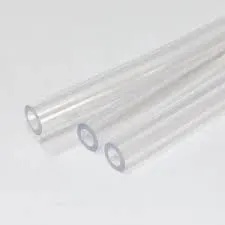Dec . 10, 2024 17:13 Back to list
Innovative Solutions for PPR Water Pipe Systems and Their Applications
Understanding PPR Water Pipes A Comprehensive Overview
Polypropylene Random Copolymer (PPR) pipes have gained significant popularity in modern plumbing and construction. Known for their durability, lightweight design, and resistance to corrosion, PPR pipes have become a preferred choice for a variety of water supply systems. This article will delve into the characteristics, advantages, and applications of PPR water pipes, providing insights into why they are an excellent option for both residential and industrial uses.
Key Characteristics of PPR Pipes
PPR pipes are manufactured from polypropylene, a thermoplastic polymer known for its remarkable strength and flexibility. The random copolymer aspect of PPR indicates that the polymer chains are arranged randomly, allowing for enhanced performance. Some of the notable characteristics of PPR pipes include
1. Temperature Resistance PPR pipes can withstand a wide range of temperatures, typically from -20°C to 95°C. This makes them suitable for both hot and cold water applications.
2. Chemical Resistance PPR has excellent resistance to most acids, alkalis, and salts, making it ideal for transporting chemically aggressive fluids.
3. Lightweight The lightweight nature of PPR pipes makes them easy to handle and install, reducing labor costs and effort during construction projects.
4. Longevity With a lifespan of over 50 years, PPR pipes require minimal maintenance, translating to long-term savings for both homeowners and businesses.
5. Eco-Friendly Being 100% recyclable, PPR pipes contribute to environmental sustainability, a crucial factor in today’s eco-conscious world.
Advantages of PPR Water Pipes
The adoption of PPR pipes in plumbing systems brings a range of advantages that set them apart from traditional materials like PVC or metal pipes. Here are some of the key benefits
1. Seamless Installation PPR pipes are typically joined using a fusion welding process, which creates seamless connections. This prevents leaks and enhances the overall integrity of the plumbing system.
2. Reduced Energy Loss The thermal conductivity of PPR is lower than that of metal pipes, which helps to maintain water temperature and conserve energy in hot water systems.
ppr water pipe

3. Low Noise Levels When water flows through PPR pipes, it produces less noise compared to metal pipes, offering a quieter environment in residential and commercial buildings.
4. Corrosion-Free Unlike metal pipes that can rust and corrode over time, PPR pipes remain free from corrosion, ensuring the quality of water remains intact.
5. Cost-Effectiveness Although they may have a higher initial cost compared to some traditional materials, the longevity and low maintenance costs of PPR pipes make them a cost-effective choice in the long run.
Applications of PPR Pipes
PPR pipes are versatile and can be used in various applications, making them a staple in the plumbing industry. Common uses include
1. Hot and Cold Water Supply PPR pipes are commonly used in residential plumbing systems for supplying both hot and cold water.
2. Heating Systems They are also used in underfloor heating systems due to their ability to withstand high temperatures.
3. Industrial Applications PPR pipes find usage in various industries, including chemical processing, food processing, and agriculture, due to their chemical resistance.
4. Drinking Water Systems As PPR pipes do not leach harmful substances, they are suitable for drinking water applications, ensuring safe water supply.
5. Air Conditioning PPR pipes are increasingly used in HVAC systems for their thermal performance and durability.
Conclusion
In summary, PPR water pipes represent a modern and effective solution for various plumbing needs. Their remarkable characteristics, coupled with numerous advantages and versatile applications, make them a superior choice over traditional piping materials. As the construction industry continues to evolve, the reliance on PPR pipes is expected to grow, driven by their efficiency, sustainability, and long-lasting performance. For homeowners, builders, and contractors alike, investing in PPR water pipes means opting for a reliable and eco-friendly solution that meets the demands of contemporary water systems.
-
High-Quality PPR Pipes and Fittings Durable ERA PPR & PVC PPR Solutions
NewsJul.08,2025
-
Black HDPE Cutting Board - Durable, Non-Porous & Food Safe HDPE Plastic Cutting Board
NewsJul.08,2025
-
High-Quality CPVC Panel Durable HDPE & PVC Panels Supplier
NewsJul.08,2025
-
Double PE Welding Rod Supplier - High Strength, Durable & Versatile Welding Solutions
NewsJul.07,2025
-
High-Quality PVC-O Pipe Supplier Durable 75mm PVC Pipe & Connections Leading PVC Pipe Company
NewsJul.07,2025
-
HDPE Drainage Pipe Supplier – Durable & Corrosion-Resistant Solutions
NewsJul.06,2025

